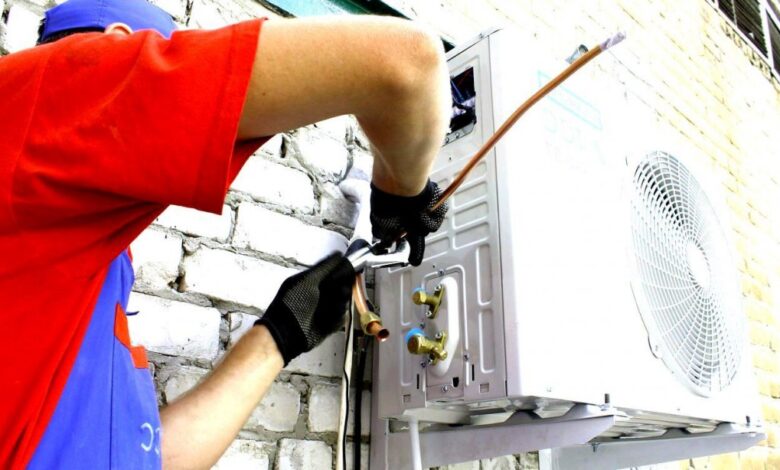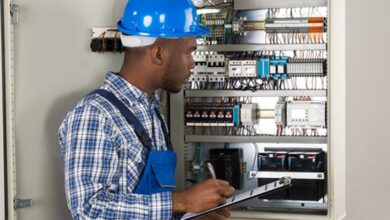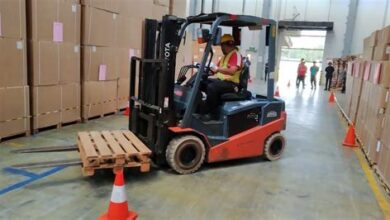
The demand for skilled HVAC (Heating, Ventilation, and Air Conditioning) technicians in Canada continues to rise as more businesses, homes, and industrial facilities require efficient climate control systems. For immigrants seeking HVAC jobs in Canada with visa sponsorship, the country offers a promising career path with numerous benefits. The HVAC industry provides both stability and growth, making it an attractive field for individuals looking to relocate and secure a job in the country.
Canada’s inclusive labor policies and consistent demand for HVAC professionals make it an ideal destination for immigrants with technical expertise. Whether you are new to the trade or have years of experience, this article will guide you through the necessary skills, certifications, and regions that offer the highest compensation for HVAC technicians. We’ll also explore salary expectations for immigrants, helping you make informed decisions as you embark on this new career path in Canada.
Entry-Level Skills and Experience Required for Hvac Jobs in Canada with Visa Sponsorship
To succeed as an HVAC technician in Canada, there are essential skills and experiences employers typically look for, especially at the entry-level. Here are some of the key requirements:
1. Basic Technical Knowledge
Employers expect entry-level HVAC technicians to understand the fundamentals of heating, cooling, and ventilation systems. This includes familiarity with components such as compressors, thermostats, and electrical systems. While extensive knowledge is not required at this stage, a foundational understanding is critical.
2. Mechanical Aptitude
HVAC work involves installing, repairing, and maintaining mechanical systems. A strong mechanical aptitude is vital for identifying issues and fixing them efficiently. Technicians need to be comfortable working with tools and equipment related to HVAC systems.
3. Problem-Solving Skills
HVAC technicians frequently encounter situations where systems malfunction or perform suboptimally. Being able to troubleshoot and diagnose problems quickly is essential in this field. Entry-level technicians should have the ability to follow logical processes to pinpoint issues and implement solutions.
4. Customer Service Orientation
As HVAC technicians often work in customers’ homes or businesses, good interpersonal skills are necessary. Being able to communicate effectively, explain technical issues in simple terms, and provide excellent customer service helps build a positive reputation in the field.
5. Physical Fitness
The job can be physically demanding, as technicians may need to climb, crouch, and carry heavy equipment. Employers value candidates who are fit enough to handle these physical requirements, ensuring they can work efficiently without risking injury.
6. Willingness to Learn
Entry-level technicians often receive on-the-job training from experienced professionals. A willingness to learn and adapt to new systems, techniques, and safety standards is critical for career growth in the HVAC industry.
7. Basic Understanding of Safety Regulations
Safety is a priority in HVAC jobs, especially when working with gas, refrigerants, or electrical systems. Even at the entry level, it’s important to have a basic understanding of safety protocols to prevent accidents and ensure a safe working environment.
8. Mathematical Skills
Calculations related to air flow, load requirements, and refrigeration cycles are common in HVAC work. Basic math skills are essential for accurately installing and repairing systems, ensuring they function correctly.
9. Attention to Detail
Precision is key in HVAC installations and repairs. Technicians must follow specific guidelines and manufacturer instructions to ensure systems run efficiently. Entry-level candidates who demonstrate attention to detail can avoid costly mistakes and gain the trust of employers.
10. Experience with Hand Tools
Experience working with hand tools such as screwdrivers, wrenches, and power drills is often a prerequisite for entry-level positions. Familiarity with these tools can help technicians perform their tasks more efficiently and with greater confidence.
Certifications Needed to Work
Securing employment as an HVAC technician in Canada often requires certain certifications to ensure that workers meet the industry’s safety and technical standards. These certifications enhance your credibility and improve your chances of getting hired. Some of the essential certifications include:
- Red Seal Certification: This certification is recognized across Canada and demonstrates a high level of skill and competence in the HVAC trade. Red Seal certification ensures that you meet national industry standards and can work in any province.
- Ozone Depletion Prevention (ODP) Certificate: This certificate is mandatory for anyone handling refrigerants, as it ensures technicians understand the environmental impacts and legal requirements for working with ozone-depleting substances.
- Gas Technician (G1, G2, G3): Depending on the level, gas technician certifications qualify you to work on gas appliances and heating systems. The G3 level is the entry-level certification, while G1 is the most advanced.
- Workplace Hazardous Materials Information System (WHMIS): This certification provides knowledge on the safe handling of hazardous materials commonly used in HVAC systems, ensuring compliance with Canadian safety regulations.
- First Aid and CPR Certification: While not always mandatory, many employers prefer HVAC technicians to have basic first aid and CPR training, as it enhances workplace safety, especially in environments that pose physical risks.
Regions with the Highest Payment Structures for HVAC jobs in Canada with Visa Sponsorship
Canada’s HVAC industry offers varying pay rates depending on the region. Here are the top five provinces and territories with the highest payment structures for HVAC technicians:
1. Alberta
Alberta has one of the strongest HVAC markets in Canada due to its thriving energy and construction sectors. HVAC technicians in Alberta typically earn higher-than-average wages, with salaries starting at around CAD 55,000 per year for entry-level positions. The province’s cold winters and growing commercial sector contribute to the high demand for HVAC services.
2. Ontario
Ontario, home to major cities like Toronto and Ottawa, has a large demand for HVAC technicians. With a mix of residential, commercial, and industrial clients, technicians in Ontario can expect to earn around CAD 50,000 to CAD 60,000 per year. The presence of large urban areas and a dense population keeps HVAC services in high demand.
3. British Columbia
British Columbia’s moderate climate doesn’t require heavy heating, but the demand for air conditioning and ventilation systems keeps HVAC technicians busy. In cities like Vancouver and Victoria, technicians earn an average of CAD 48,000 to CAD 55,000 annually, with opportunities for growth as the green energy sector expands.
4. Saskatchewan
Saskatchewan may not have the population density of larger provinces, but its harsh winters create a high demand for HVAC technicians. Salaries in Saskatchewan range from CAD 50,000 to CAD 58,000 per year. The agricultural sector and growing commercial construction projects also contribute to steady HVAC job growth.
5. Manitoba
Manitoba offers competitive wages for HVAC technicians, with salaries ranging from CAD 48,000 to CAD 55,000 annually. The province’s extreme weather conditions and industrial sector generate consistent demand for skilled technicians.
Salary Expectations for Immigrants
HVAC technicians in Canada can expect competitive salaries, particularly for those with the right certifications and experience. The table below outlines the average salary expectations for HVAC technicians across different regions, particularly for immigrants starting at entry-level positions:
| Region | Entry-Level Salary (CAD) | Experienced-Level Salary (CAD) |
|---|---|---|
| Alberta | $55,000 – $60,000 | $70,000 – $85,000 |
| Ontario | $50,000 – $60,000 | $65,000 – $80,000 |
| British Columbia | $48,000 – $55,000 | $60,000 – $75,000 |
| Saskatchewan | $50,000 – $58,000 | $65,000 – $80,000 |
| Manitoba | $48,000 – $55,000 | $60,000 – $75,000 |
As the table indicates, salaries for HVAC technicians vary depending on the region, with Alberta and Ontario offering the highest pay for both entry-level and experienced technicians. It’s important to note that as immigrants gain more experience and additional certifications, their salary potential can increase significantly, particularly in high-demand regions.
Conclusion
HVAC jobs in Canada with visa sponsorship offers a rewarding career path for immigrants looking to build a sustainable path abroad. Entry-level positions require a combination of mechanical aptitude, problem-solving skills, and a willingness to learn, while certifications like Red Seal and ODP are essential to improve employability.
Regions such as Alberta, Ontario, and British Columbia offer some of the highest payment structures for HVAC technicians, making them attractive options for immigrants seeking higher earnings. With competitive salaries, a growing demand for skilled labor, and visa sponsorship opportunities, Canada is an excellent destination for HVAC professionals looking to build a successful career. Whether you’re just starting out or have years of experience, the Canadian HVAC industry holds significant promise for your professional growth.



